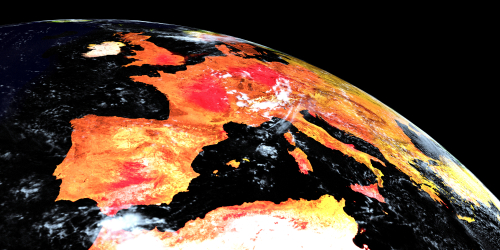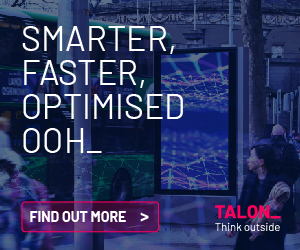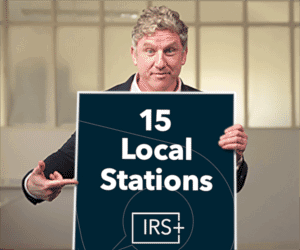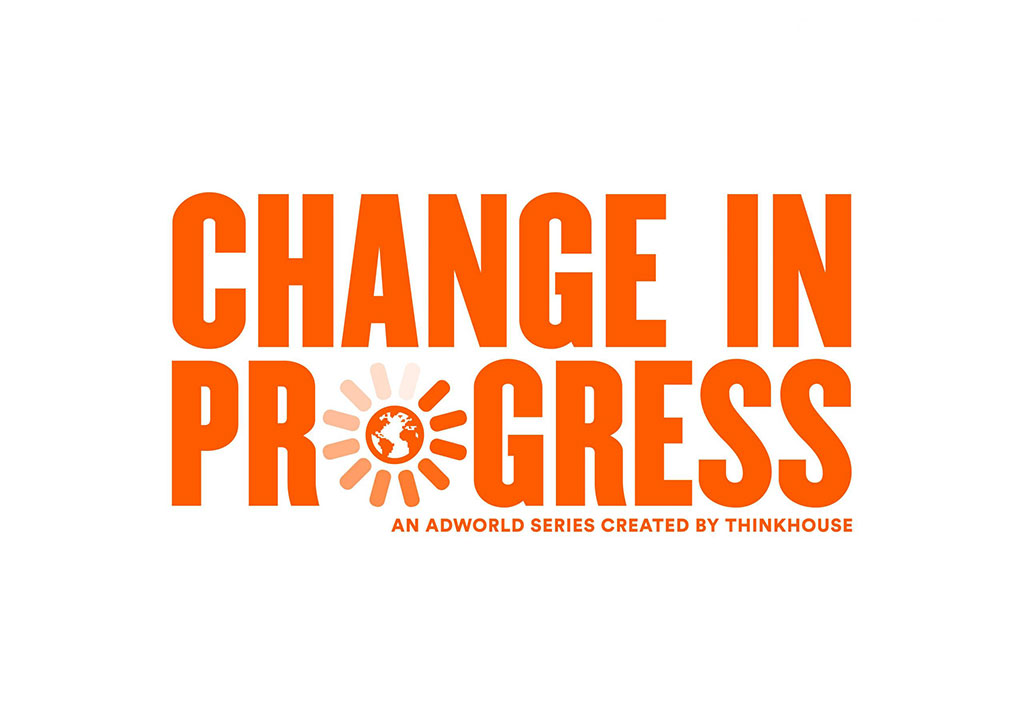 Welcome to the third instalment of our Change in Progress series, a collaboration between Thinkhouse and Adworld.ie. This issue has been led by Laura Costello, strategy director, Purpose & Planet, and Claire Hyland, head of The Youth Lab, part of Thinkhouse’s PLANET Team and examines the business of biodiversity.
Welcome to the third instalment of our Change in Progress series, a collaboration between Thinkhouse and Adworld.ie. This issue has been led by Laura Costello, strategy director, Purpose & Planet, and Claire Hyland, head of The Youth Lab, part of Thinkhouse’s PLANET Team and examines the business of biodiversity.
“Technology cannot replace the trees, the soil, the water, and the species that teem in them. We have no other world to flee to. When the web of life falls, we fall with it.” (Inger Andersen)
Change is in progress. Extreme weather events are getting worse, more regular, and more deadly – all over the world. We had three of the hottest days ever on record, in a row, last week. Ireland is experiencing marine heat waves. Right now, in Spain, land temperatures are spiralling. These global trends are a result of human activity, putting unprecedented pressure on lives and nature.
This edition of Change In Progress addresses biodiversity and nature loss. As biodiversity and nature rise in the risk agenda for businesses and communities, companies are beginning to integrate nature into decision-making and positive business practices. Here we’ll explore some key business risks, how businesses are responding, and outline the opportunities for marketers to help turn our generation’s nature story from one of tragedy to love.
The Business of Nature
Biodiversity plays a critical role in functioning ecosystems, underpinning our economy, health and wellbeing. But biodiversity, nature – and humanity – is under threat like never before. Nature is dying faster than humans have ever known.
There have been warnings of the onset of a ‘sixth mass extinction’, with the WWW Living Planet 2022 Report highlighting that human activity has resulted in the average decline of 69% in species populations since 1970.
The latest science on planetary boundaries has also sounded the alarm on behalf of justice for nature, ecosystems and global communities – highlighting how our ‘safe operating space for humanity’ has been breached. According to The Guardian, one UN Global Assessment report shows “a planet in which the human footprint is so large it leaves little space for anything else. Three-quarters of all land has been turned into farm fields, covered by concrete, swallowed up by dam reservoirs or otherwise significantly altered…more than 500,000 species have insufficient habitats for long-term survival. Many are on course to disappear within decades.”
As nature unravels, the efforts to highlight the link between the health of nature and the health of economies is a priority for businesses and financial organisations. The European Central Bank recently spoke out in defence of its work exploring climate and environmental risk. Pushing back against critics who say this work is overstepping its mandate and distracts from its main mission to fight runaway inflation, Frank Elderson, Member of the Executive Board of the ECB and Vice-Chair of the Supervisory Board of the ECB, notes; “Destroy nature and you destroy the economy.” With Seventy two per cent of the 4.2 million eurozone companies relying on at least one “nature-related service” such as pollination, clear-water, healthy soil and/or timber to operate, the same number, and three-quarters of bank loans in the region, are now at risk to biodiversity loss.
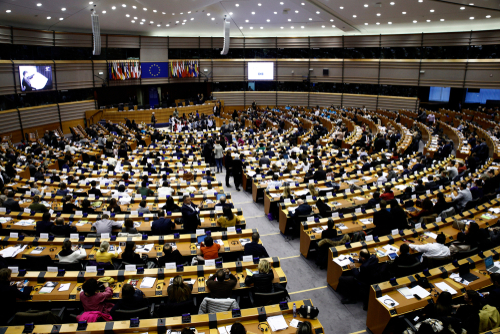
Regulations & The Nature Restoration Law
The subject of nature restoration has also been driving regulatory and policy discussions in recent weeks on a European level. The long-debated Nature Restoration Law finally, albeit narrowly, passed this week, (Irish MEPs ‘swung vote’ was critical to its passing).
Heralded as “a social victory: for scientists, for young people, for a lot of companies and businesses, for the agricultural sector,” the historic law was fiercely contested, despite the decline of European habitats (81% classed as being in poor health). The European People’s Party campaigned to reject the plan on the grounds it would harm farmers, endanger food security and increase food prices. However, in the past month, businesses got involved in the campaign for the law to pass.
Over 100 of Europe’s biggest businesses spanning consumer, finance, and energy, including Nestlé, Unilever, and IKEA rallied to save it on business grounds. Bart Vandewaetere, VP ESG Engagement, Nestlé Europe was quoted as saying: “When nature is under pressure, our food systems are under pressure. For example: rising temperatures will reduce the area suitable for growing coffee by up to 50% by 2050 if we don’t intervene. Nature restoration and food security are interdependent – we rely on nature for producing our raw materials.
Citizens across Europe, including young trainees at the EU, also voiced out for the passing of the law, with many directly campaigning their local MEPs (hats off to Friends of The Earth in Ireland who created a tool for easy lobbying of Irish MEPs). The law to protect nature is a key pillar of the European Green Deal, and will place recovery measures on 20% of the EU’s land and sea by 2030, rising to cover all degraded ecosystems by 2050. Its passing, declared as a once-in-a-lifetime vote, is indeed a victory for nature.
DEALING WITH THE DISCONNECT
“We prioritise the bottom line when the practices that contribute to it threaten the survival of the planet: the endless pursuit of economic growth, a view of nature as merely a limitless source for materials and sink for wastes, and the mindless consumption that drives it…research theories must now treat economic systems as intertwined with the primacy of natural ones.” Andrew Hoffman, Financial Times, 2023
We are starting to see companies trying to bridge the current disconnect between business and nature, and realise the connection between climate change and biodiversity loss – we can’t solve one crisis without solving the other. This means thinking beyond carbon emission reduction (the carbon funnel) and working to understand and limit their contribution to species loss, partly prompted by pressure to disclose their risks to climate and environmental damage. While there is not a standard way for companies to measure their biodiversity goals presently, the Taskforce on Nature-related Financial Disclosures is creating guidelines for companies to report on biodiversity (a framework is expected to be released in September, following a pilot test with over 200 companies). Elsewhere, the Science Based Targets Network, backed by an independent coalition that includes the WWF and the UN, recently published tools and guidance for companies to set goals related to nature. The pilot project of Science-based Targets for Nature involves 17 companies following a process to set, implement and track progress on targets for freshwater, land, biodiversity and ocean, as well as climate.
What Should Marketers Focus On?
There are no non-radical futures. It is up to everyone to shape the radical changes we’re to face together. But how can we start to translate all this in our work?
Bring Nature Into The Board/Meeting Room:
Some pioneering businesses like Patagonia (placing nature as sole shareholder) and Faith In Nature (placing a voice for nature on the board) have already started to centre nature structurally in the business. Faith In Nature has an online guide on giving nature a voice. These models can also be used to inspire day to day conversations and questions that can be used to centre the voice of nature in our creative conversations.
Tackle ecological illiteracy & disconnect with the natural world:
Research has shown that people tend to be less aware of biodiversity loss than they are the climate crisis. U.S. and UK studies have also found that children are failing to identify plants and animals (even identifying corporate logos above native species). Brand campaigning and creative communications skills can tackle issues like this. At THINKHOUSE we worked with innocent drinks last year to educate people on native species in Ireland with the Big Rewild. We’re also inspired by brands like REI campaigning for everyone to live within 5 minutes of natural spaces.
To expand on these themes, we spoke to the wonderful Alexandra Pimor, who represents Nature on the board for the brand Faith In Nature – acting as the proxy for nature’s voice and vote on the board of directors, to provide insight into the shifts that need to be invited into the industry for real change to progress. Pimor shared reminders of how important it is to challenge capitalist thinking and remember human nature: “When we use the words marketers and advertisers in this current world, this capitalist world, in a cynical way you think their role is to sell. It is to sell an image, it’s to sell a desire, it’s to create a need that may not even be there. But marketers and advertisers are human beings first.”
The big opportunity that exists right now, is to use our creativity to drive connection – with each other and the natural world: “From the perspective of the collective co-creation of a world, marketers and advertisers are storytellers. They have a way of communicating, articulating and translating the way we see the world, the way that wider populations can view the world. They are people who understand the meaning and the power and influence of stories, images and thoughts in creating a way of life. So, when they tell us stories of what we should aspire to – marketers and advertisers need to look at the needs of nature as a whole and ask, in relation to our responsibilities towards each other and towards the earth, what do human beings need to do? What do companies need to do?”
Pimor also highlighted the importance of influence and how we need to take responsibility for this influence we have as an industry on wider society: “Marketers and advertisers influence the way we view the world and remind us of what we are here for. And what we are here for is not to buy, it’s not to consume… I think marketers and advertisers are the original influencers. So – what kind of influence do they want to be? Do they want to influence more consumerism? Or do they want to mobilise and galvanise human beings into pouring their energy where it matters? Marketers and advertisers could help focus the mind towards what actually matters. So that the money that people spend goes towards actually matters – towards a peaceful world.”
If we choose to centre and channel the love and connection we have for nature into our work, we can improve lives and livelihoods across the world.
If you have a particular challenge you’d like addressed in our ‘Change in Progress’ Series, please email us at theyouthlab@thinkhousehq.com
















